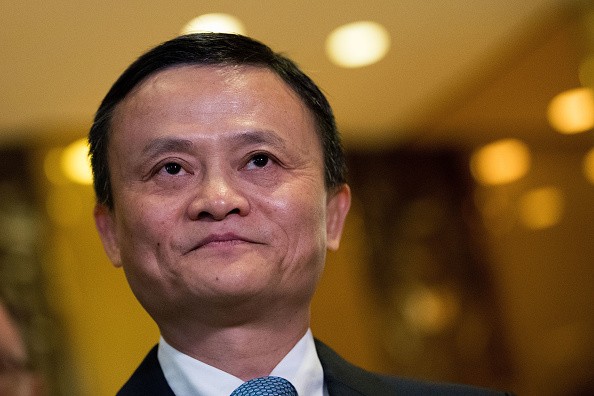Alibaba founder and chairman Jack Ma has for the first time called directly for the Chinese government to intensify its fight against counterfeiting, blaming paltry penalties and lax laws for the scourge of fake goods.
Ma's appeal to Chinese lawmakers at this week's session at the National People's Congress (NPC) in Beijing is an escalation for the e-commerce tycoon and a reversal of his earlier comments that counterfeits are often of higher quality than the original, according to a report by the Financial Times on Tuesday.
The remarks also come after Alibaba's e-commerce platform Taobao's return to the U.S. blacklist of "notorious markets" for hosting sales of fake products.
In an open letter to delegates of the NPC posted on the Weibo social media platform, Ma urged for counterfeit sellers to be prosecuted in the same way as drunk drivers.
"If, for example, we imposed a seven-day prison sentence for every fake product sold, the world would look very different both in terms of intellectual property enforcement and food and drug safety, as well as our ability to foster innovation," he wrote.
Citing laws that enabled 99 percent of counterfeit activities in China to go unchecked and inappropriately small penalties for those caught, Ma said there was "a lot of bark around stopping counterfeits, but no bite."
While Ma's remarks were received with public acclaim, analysts say his comments may be more than just lip service in response to the U.S. Office of the Trade Representative's blacklist of Taobao.
"What he is saying is valid: China needs to do more. Alibaba is investing more in anti-counterfeiting, hiring more lawyers and going after people. But it still feels very much like showboating," said Paul Haswell, a partner at Pinsent Masons in Hong Kong.
Foreign brands have complained of the wide swath of fake goods across Taobao and that online counterfeit sellers shut down by Alibaba have simply reappeared in a different name a few hours later.
In response, Alibaba said it is harnessing big data, combining addresses and other information, to catch repeat offenders, but their efforts are being undermined by Chinese law, Ma said.
Ma added that big data has enabled Alibaba to pass on 4,495 leads to Chinese law enforcement officials, leading to the successful criminal prosecution of 469 cases--a hit rate of roughly 10 percent.
Of the 200 counterfeit cases penalized last year, the average fine was 10,000 yuan ($1,450), according to the company.
"This reality only encourages more people to produce and sell fake goods!" Ma wrote in his letter.
"Counterfeit goods are being produced in a steady stream every day by illegitimate factories, just like the smog that comes from all directions and fills the streets, he said, adding that "manufacturers will always be the source of the problem, and the law has to be the root of the solution."



























